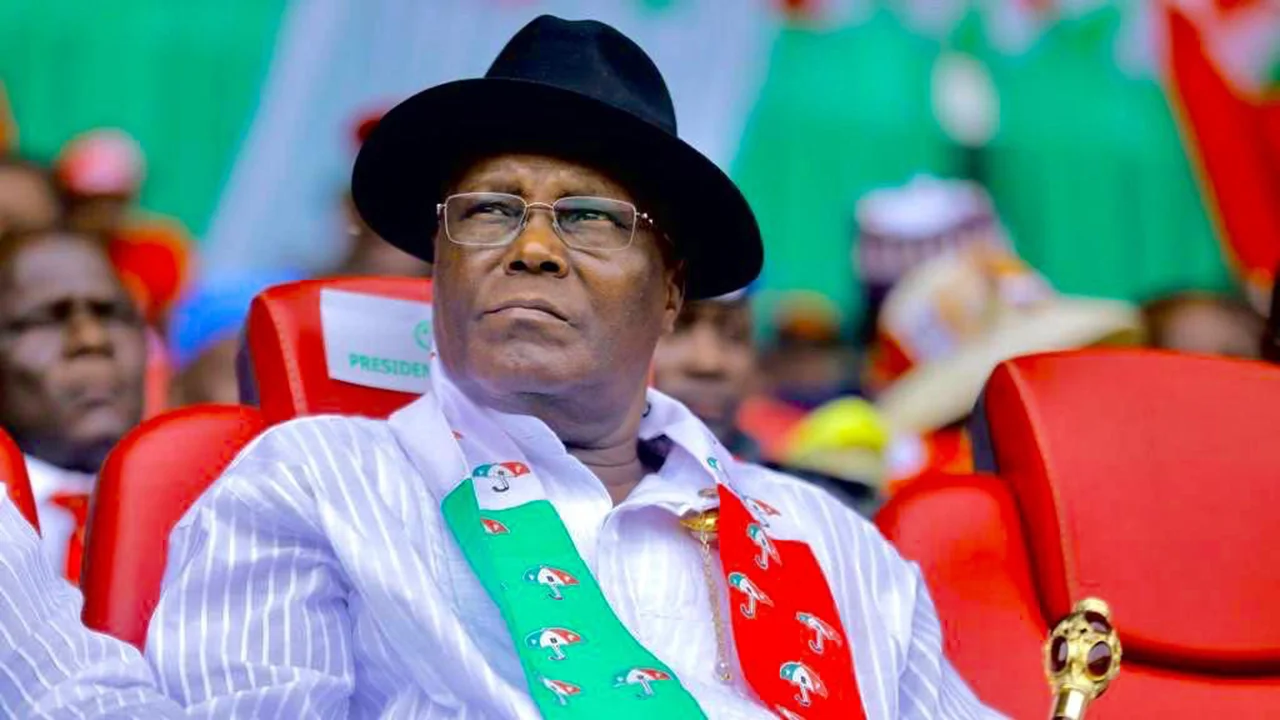NEXT year’s presidential election is the sixth attempt by Atiku Abubakar, presidential candidate of the Peoples Democratic Party, PDP, to become Nigeria’s president since 1993. At 75 in November, Atiku will, it’s safe to say, not run for president again in 2027, then aged 80, if he loses next year’s poll. Put starkly, if Atiku loses next year, he will be remembered as the preeminent serial loser in Nigeria’s presidential politics.That, inevitably, raises the stakes for him in next year’s election!
But the stakes are even higher because this time, unlike his previous attempts, Atiku is going against the grain of popular opinion, especially in the South and the Middle Belt, that another Northerner should not succeed President Muhammadu Buhari. Yet, Atiku wants to succeed Buhari; hence he pulled out all the stops to secure his party’s ticket.
Surely, then, having ridden roughshod over the logic of rotational presidency, having defied the zeitgeist of the present time, Atiku must win next year to escape a place in history as Nigeria’s most famous egotistical serial loser! I mean, why would he fight tooth and nail to secure his party’s presidential ticket by hook or by crook (think of “dollar rain” and other shenanigans at the PDP presidential primary) if he’s going to lose the election? To save face and demonstrate prescience, Atiku must win. But can he?
Well, Atiku is complacent about the challenges ahead. He assumes that, unlike Bola Tinubu’s deeply corrosive Muslim-Muslim ticket, which will have consequences at the polls, his own Northern candidacy will have no consequences, especially in the South. Yet, the South may prove problematic for Atiku, and he would be utterly misguided to take it for granted.
In appealing to his party to give him its presidential ticket, Atiku said: “I already have 11m votes,” referring to his total votes in the 2019 presidential election. But over half of those votes came from the South. Of his 11, 262, 978 votes nation wide, Atiku won 5,703,393 in the South against 5, 559,585 in the North. The question is: Are Atiku’s 5.7m votes in the South in 2019 bankable for 2023? Well, the answer is: Very unlikely!
First, concerns about another Northerner succeeding President Buhari would have some impact. Southern socio-cultural groups, such as Afenifere, Ohanaeze and Pan-Niger Delta Forum, which strongly supported Atiku in 2019, now strongly oppose him. Their stance won’t be without effects.
Linked to that is the “OBI-dient” phenomenon. In his recent Arise TV interview, Atiku glibly dismissed it as a social media sensation, saying: “It is very difficult to expect a miracle to happen simply because Peter Obi is in the Labour Party.” But the rapturous welcome Obi received from over 120,000 congregants of the Abuja-based Dunamis Church last week suggests that Atiku is unwise to dismiss his popularity as a social media fad.
But those aside, Atiku faces another major threat in the South: a divided party, fuelled by the bruised ego of the Rivers State governor, Nyesom Wike, who pulled off a strong second-place showing in the PDP’s presidential primary election. Truth is, Atiku has handled the post-primary crisis with utter complacency bordering on arrogance. All over the world, presidential primaries create varying degrees of bitterness; it’s up to the winner to assuage hurt feelings and unite the party for victory.
In 2008, after a bitter presidential primary, Barack Obama, picked one of his major rivals, Joe Biden, as his running mate; they went on to win the election. In 2020, after another bitter presidential primary, Joe Biden picked Kamala Harris, one of his rivals who called him a racist during the primary campaign, as his running mate; they, too, went on win the election. By contrast, Hillary Clinton’s defeat in the 2016 presidential election is widely attributed to her failure to pacify Bernie Sanders, her bitter rival in the primary.
Now, I’m not suggesting that Atiku should have picked Wike as his running mate. Far from it. But Atiku rubbed salt into Wike’s wound. For instance, when he unveiled Governor Ifeanyi Okowa as his running mate, Atiku said: “Sometimes a candidate is chosen who generates a buzz and adds excitement to the campaign”, adding: “But today in Nigeria, we face huge challenges which leaves us little room for drama.”
Everyone knew that Atiku’s “little room for drama” jibe was aimed at Wike. But why? True, Wike is a self-indulgent narcissist, who behaves like a bull in a china shop. But leadership is about managing people, including difficult people. Atiku must read Dale Carnagie’s famous book: How to Win Friends and Influence People. Let’s face it, unless Atiku stops the Wike problem from festering, he would worsen his complicated Southern problem! He should be making friends, not enemies, in the South. Yet, he’s complacent!
But Atiku is complacent about the North too. Asked by Arise TV whether he was troubled by Tinubu’s choice of Kashim Shettima as his running mate given both are from the North-East, Atiku, sadly, played the ethnic card. Hear him: “If you know the composition of the North-East, you have Borno and Yobe, these are essentially two Kanuri states. Then, you have the other (four) states, which are essentially Hausa/Fulani states. Even if people are going to vote on that basis, I have a more favourable (position) from the North-East.”
In 2019, Atiku won 5,559,584 votes in the North compared to Buhari’s 11,596,707. His assumption is that because Buhari is not on the ballot in 2023, most of the Hausa/Fulani votes would gravitate to him. Would they? The fight for the North’s votes would be fierce, and Atiku would be unwise to underestimate Tinubu’s APC and Rabiu Kwankwaso’s NNPP.
Truth is, across the country, Atiku’s Northern candidacy and Tinubu’s Muslim-Muslim ticket will have serious consequences. Add Obi and Kwankwaso to the mix, the outcome becomes uncertain. Being Atiku’s sixth and most controversial attempt raises the stakes for him. Hubris is at his own risk!



